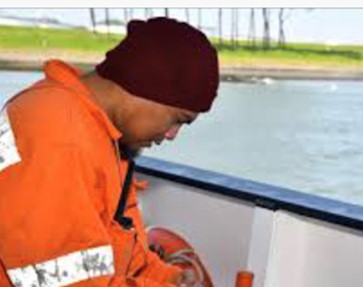
Seafarers has been the backbone for the shipping industry and without them, there will be no flow of goods. For the many years prior to 2020, seafarers had the privilege of taking shore leaves, be repatriated timely and ensured a sign off upon their requests on compassionate, medical, or personal reasons. However, with the onset of the Covid-19 pandemic, the new normal is lesser or limited shore leaves and carefully planned repatriation itineraries.
As one of the larger flag states, we recognise the challenges faced by shipowners, managers, and operators when it comes to crew changes. While most borders are progressively re-opening, there are still a multitude of non-uniform requirements for crew changes to be conducted at different ports. From quarantine to visa requirements which vary from one port to another, we are keenly aware of these problems. Yet, these requirements should not be the basis on why companies are unable to repatriate a crew before they exceed their 11 months onboard. Company should plan at least 2-3 months ahead, instead of planning the repatriation of the crew at the very last month.

Today, we continue to receive feedbacks from seafarers on not being repatriated when their contract has expired. Many of these pleas highlight their fatigue onboard and how they simply want to go home after not seeing their family for over 11 months. As a responsible and a quality flag, it is heartening to receive such feedbacks and we are working very closely with our shipowners, managers, and operators to find possible solutions and discharge their responsibility when it comes to managing their greatest assets – seafarers.
Case study
In the third quarter of 2021, a Singapore Registered Ship entered Australia and 13 crew for more than 12 months. The company cited the lack of flights, inability to obtain a visa for on-signing crew and that their berthing schedule could not be aligned with the flight schedule. As a result, the company was only able to repatriate the crew after their voyage in Australia.

The vessel was boarded by Port State Control (AMSA) and was immediately detained for violating the Maritime Labour Convention. The company was given 2 choices. Either to sign the crew off at the subsequent Australian ports or to sail under detention directly to overdue crew home port without any detour. Subsequently, the company was able to conduct a crew change in Australia and the detention was lifted.This vessel was also banned from entering Australian ports for 6 months by AMSA.
This article serves to remind shipowners, managers and operators of Singapore-registered ships that it is a violation under the ILO's Maritime Labour Convention, enacted under the Singapore's Merchant Shipping (Maritime Labour Convention) Act, for seafarers without a valid Seafarer Employment Agreement (SEA) to continue to be engaged on board ships, or if their total sea service exceeds the 11 months maximum duration, taking into account of requirement for seafarer to consume earned annual leave.
Nonetheless, the companies may write to the Seafarers Management Department, MPA (mmo_mpa@mpa.gov.sg) to seek for assistance if there are crew that are about to exceed 11 months onboard. Requests for extension can be considered on a case-by-case basis taking into consideration the company's repatriation plan. Companies are to submit the following information/documents when seeking for an extension:
- a. Proof of attempts made for crew changes (records of such attempts such as flight bookings/communication with local agents, etc);
- b. Company's repatriation plan (i.e. Port of call, ETA, flight bookings and communication with local agents);
- c. Extension Seafarers Employment Agreement (SEA); and
- d. Letter of consent which should be signed by the crew, demonstrating that the crew is willing to sail to the expected port of call for repatriation under an extended contract.
